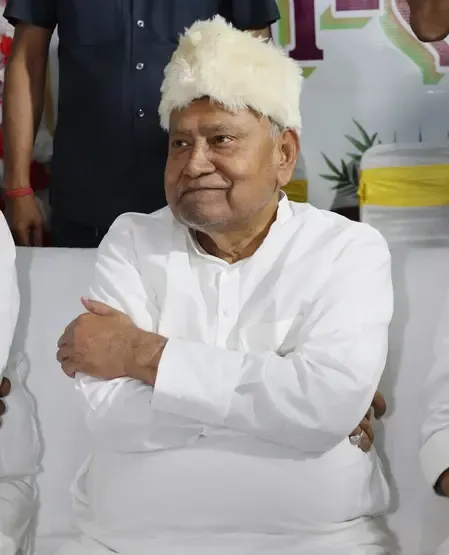JD(U)'s Backing of Waqf Bill Provokes Resignations of Three Muslim Leaders

Synopsis
Key Takeaways
- Mohammad Tabrez Siddiqui resigns from JD(U).
- Accusations of betrayal of secularism against the party.
- Growing number of minority leaders leaving JD(U).
- Concerns over the Waqf Amendment Bill's impact on minority rights.
- Potential electoral consequences for JD(U) in Bihar.
Patna, April 4 (NationPress) Political upheaval continues to affect the Janata Dal (United) after its endorsement of the Waqf Amendment Bill, with another prominent figure from the minority wing, Mohammad Tabrez Siddiqui, stepping down from the party. In a letter addressed to Chief Minister Nitish Kumar, Siddiqui, who serves as the State General Secretary of JDU’s Minority Wing, stated: "I never anticipated JDU would support the Waqf Amendment Bill. I am disillusioned by the party’s position in Parliament. Therefore, I resign from the primary membership and all my roles within the party."
He accused the party of undermining its secular principles and cautioned that JDU would confront repercussions in the upcoming Bihar Assembly elections later this year. "There will be an exodus from JDU due to widespread dissatisfaction regarding this issue," he remarked.
Siddiqui is now among a growing number of minority leaders departing the party, including Mohammad Kasim Ansari, a former JDU candidate from Dhaka (East Champaran), and senior JDU member from Jamui, Mohammad Shahnawaz Malik.
All have pointed to JDU’s endorsement of the Waqf Bill as a betrayal of secular ideals and a slight to the sentiments of Indian Muslims.
In his resignation letter directed to Nitish Kumar, Ansari expressed profound disappointment over the party’s backing of the Waqf (Amendment) Bill in Parliament. "Many individuals in the Muslim community, like myself, regarded Nitish Kumar as a champion of secularism, but this faith has now been shattered," Ansari stated.
He further added, "The manner in which JD-U endorsed the Waqf (Amendment) Bill has deeply offended Indian Muslims and party members like myself."
The Waqf Amendment Bill has successfully passed through both Houses of Parliament—Lok Sabha and Rajya Sabha. Prime Minister Narendra Modi praised it as a move towards “socio-economic justice and transparency.”
BJP leaders contend that it will prevent the misuse of Waqf land, assist impoverished and backward Muslims—particularly Pasmandas—and introduce enhanced accountability in Waqf property management.
Conversely, opposition parties and Muslim leaders regard the bill as a direct assault on minority rights, alleging that it serves as a mechanism to appropriate Waqf lands and further marginalize the community under the pretense of reform.









